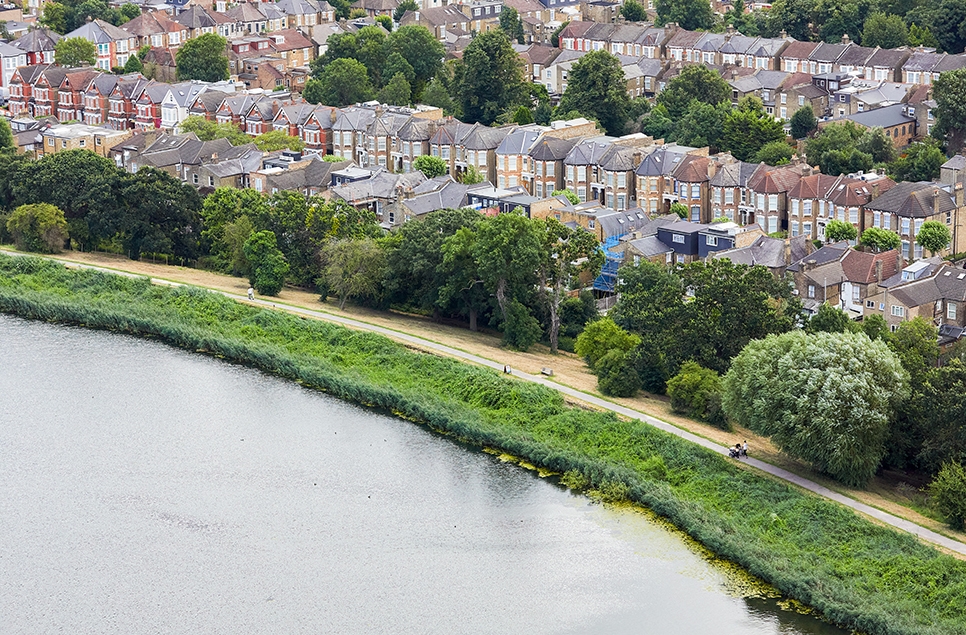Wetlands at risk – Government backslides on promise to protect nature through plans to remove vital anti-pollution law
WWT is deeply concerned by this week’s announcement that the government plans to scrap nutrient neutrality legislation designed to protect our most vulnerable rivers, streams and lakes from extra sewage and other pollution from new homes.

Not only does this regressive step threaten the health of some of our most precarious wetlands which are already close to collapse, but it demonstrates that the government’s explicit promises not to weaken legal protections for the environment are meaningless. Is this the start of #attackonnature round two?
England’s green watchdog, the Office for Environmental Protection has condemned the move as alarming saying: “The proposed [government] changes would demonstrably reduce the level of environmental protection provided for in existing environmental law. They are a regression”. They are calling on the government to explain in detail how it plans to improve the natural environment while weakening environmental law. Something we are also keen to understand.
What are nutrient neutrality laws and how will scrapping them put nature at risk?
Nutrient Neutrality laws ensure new homes will not add further nutrients (pollutants – usually nitrogen or phosphorus) to already polluted waterbodies in our most important natural areas. The rules require developers to counterbalance pollution by creating habitats like wetlands which filter out harmful nutrients. They also help protect our very best wildlife sites, as well as improving river and air quality.
The proposed scrapping of this effective legislation removes the requirement on developers to offset pollution from new housing and other developments. Instead, it abandons the ‘polluter pays’ principle and shifts the onus for dealing with pollution to the taxpayer-funded Natural England.
The proposed one-off injection of £140 million extra funding for a Nutrient Mitigation Scheme run by Natural England is welcome, but it is extremely doubtful this will replace the significant amount of investment from the private sector that existing nutrient neutrality regulations would have generated to effectively tackle pollution. Funding, without law to back it up, also lacks robustness and is vulnerable to future budget cuts and changes of government.
This is a significant step backwards for the health of England’s already beleaguered wetlands, threatening nature’s recovery, communities and businesses. And goes against the government’s promises to halve nutrient pollution.
This backwards step is a false choice
We don’t have to choose between more homes and clean water – both are achievable with forward thinking policy like the existing nutrient neutrality regulations.
Scrapping this legislation is a missed opportunity. It promised to bring about the widespread creation of multi-benefit measures like treatment wetlands, as part of every new housing development in protected areas such as Special Areas of Conservation. These small-scale ‘natural solutions’ not only safeguard our waterways from pollution they also help create nature-rich neighbourhoods, boost wellbeing and protect homes from flooding.
We hope that the new Nutrient Mitigation Scheme run by Natural England will follow the lead of forward-thinking developers who have already started building treatment wetlands in developments to meet nutrient neutrality requirements. As nature’s natural filtration systems, it is key that Natural England includes creating small-scale wetlands at the heart of its new scheme.
Nutrient neutrality legislation is not a barrier to responsible development. They are currently unblocking housing schemes in the North-East of England, in the South of England and on the Somerset Levels while protecting the water environment. But the government has chosen to only listen to those developers who are vocally opposed to the scheme, claiming it holds up development. There are other more significant reasons why development and house building is being held up and nutrient neutrality rules should not be a hostage to sorting those out.
How can you help
However, all is not lost, the amendment was tabled in the final stages of the Levelling Up and Regeneration Bill passing through the House of Lords. Please share our social posts about this issue to help highlight to the wider public and decision makers what a backwards step this would be if this amendment is passed. Thank you.
For further information
WWT is currently providing a secretariat function to Natural England for the treatment wetlands element of the Nutrient Mitigation Scheme (Nutrient Neutrality). Through this two year contract, WWT provides advice and guidance on issues such as how to link the scheme to the industry professionals who will be crucial to its delivery, including supporting the development of the frameworks needed. WWT is also advising on the scheme standards and monitoring protocols needed to make delivery of nutrient neutrality robust and repeatable. Beyond this immediate scheme support, WWT will also be helping Natural England to develop training both for civil servants and the wider sector to ensure that these nature-based solutions can be scaled up as the scheme develops.
Our ‘Wetlands for Water Quality’ route map shows how treatment wetlands can be a crucial part of tackling water pollution and restoring nature.



